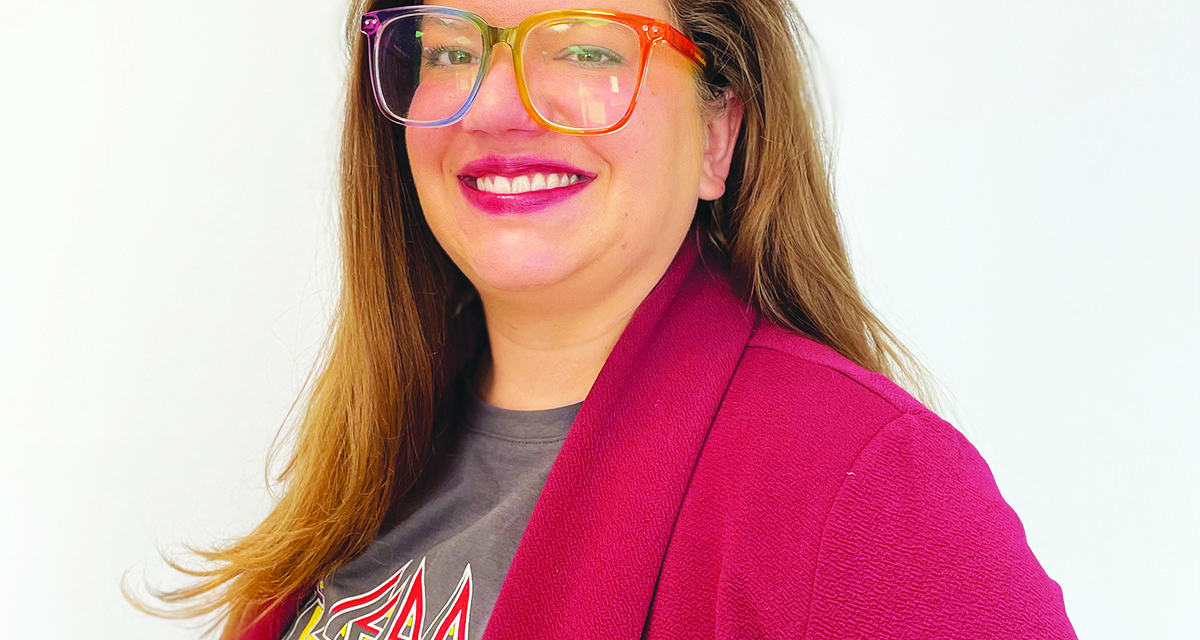By Kaitlyn Scoville
Neenah News and Oshkosh Herald
A new location for autism health services recently opened in Oshkosh to help close a gap found by families in the Fox Valley searching for treatment.
Caravel Autism Health was first opened in 2009 in Green Bay by Eric Lund and Christopher Van Dyke to deliver applied behavior analysis (ABA) therapy to children on the autism spectrum and has since opened locations in five states.
According to the U.S. Centers for Disease Control and Prevention, about 1 in 44 children have been identified with autism spectrum disorder and is about four times more common among males than females.
“Autism spectrum disorder is a developmental disability that can cause significant social, communication and behavioral challenges,” the CDC website reads. “There is often nothing about how people with ASD look that sets them apart from other people, but (they) may communicate, interact, behave and learn in ways different from most others.”
Learning, thinking and problem-solving capabilities among those with ASD can range among a wide spectrum from gifted to severely challenged.
Caravel Fond du Lac and Oshkosh director Abby Amacher said that the autism spectrum is large.
“Children are profoundly impacted by their diagnosis and engage in very few independent skills and communication,” she said. “What I think is important for people to know is that if you’ve met one child with autism you’ve met one child with autism. You cannot make assumptions that every child or every adult is the same.”
Amacher has been with Caravel for 10 years to continue her passion of serving the underserved. Some families may have to travel far to get necessary treatment for their child.
“There was this gap where people didn’t know autism treatment existed in this area,” Amacher said. “We found a lot of kids were slipping through the cracks. Some families live farther out from metropolitan cities – driving 30 minutes here is a lot easier than an hour and a half to Madison.”
Caravel acquired a new space at 1306 S. Main St. in April, and Amacher stepped up to lead both Fond du Lac and Oshkosh locations in September. However, its services did not begin until last month.
Opening the Oshkosh location expanded overall access to treatments, Amacher said. That will always be her goal: reaching the underserved. Through Caravel, she’s able to provide ABA treatment for children without their families having to travel to Green Bay, Milwaukee or Madison.
ABA treatment is evidence-based and has 70 years of research behind it as a treatment for autism, but it’s not exclusively just for that, Amacher said.
“Some sports teams have behavior analysts that work for them to increase safety on the field or reduce injuries,” she said. “Nursing homes use ABA for dementia patients to arrange their environment. There’s a lot of different ways it can be used.
“We can break down observable, measurable skills down, rearrange them and provide positive reinforcement to increase desirable skills in the future.”
All of Caravel’s programs are taught in a controlled environment, from classroom models to one-on-one engagement.
There is also a stations room where the children can broaden their imagination with different activities. Amacher said one of Caravel’s focuses is communication and requesting, so the stations room helps with that.
“The ultimate goal is working on what we call generalization and maintenance. We want children who are learning a skill in our setting to be able to go into any setting and complete it,” Amacher said. “The biggest thing is making sure we’re teaching those skills to generalize in all environments.”
Sometimes, helping kids generalize their skills to all environments requires Caravel’s staff to leave the office and help where they’re needed.
Another piece of their services lies in family treatment guidance, which trains parents on what Caravel does so they can help their kid outside of the controlled classroom environment.
“We’re not out here creating little robots; not every child gets the same goals. There are going to be things one child news to work on and another child doesn’t,” Amacher said. “Plans are individualized and reviewed with the family; it’s a living document that can have changes made to it at any time.”
Caravel asks families for a one-year commitment, but intensive program children should commit to anywhere from one to three years. Their focused model program narrows a child’s goals and can last anywhere from a year to 18 months.
Generally, more children who enter the program at a later age have fewer language deficits, Amacher said. In these cases, Caravel staff might do more in-home treatments.
“If we can teach kids to communicate, whether through verbal speech, sign language, or using an alternative communication device, we often see those problem behaviors go down and communication go up,” she said.
They also work a lot with pediatricians and birth-to-3 day cares to identify early signs of autism and make sure referrals are in place.
“Some old-school pediatricians say they’ll mature, and that’s not really best practice,” Amacher said. “If you have an 18-month-old that has problem behaviors that are atypical, and you’re seeing sensory needs or lack of communication – they’re not meeting those developmental milestones – the best thing a family can do is get in for an evaluation right away and not wait.”
Most Caravel clients are in their early intervention ages between 2 and 4, but they work with ages 18 months to 18 years.
“The recommendation is the second you have a concern, let’s get that evaluation scheduled and see where it takes us,” Amacher said.
But she also said treatment for children with autism is not the same as discipline.
“They don’t (need discipline) – it’s a skill deficit and a disability,” Amacher said. “What we come in to do is help teach those skills that are missing to make sure they can live a better life for whatever that child wants to live their life as.
“Our jobs are not always easy – there are hard things we deal with but being able to focus on the positive and the progress the kids make is what keeps us coming back day after day. Caravel is my home.”





